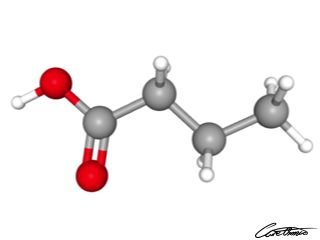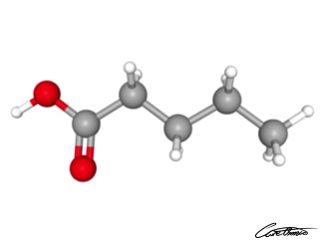Saturated Short-Chain Fatty Acids: How To Use Them For Your Benefit
Short-chain saturated fatty acids (SCFAs) are monocarboxylic acids with a hydrocarbon chain length of 1 to 12 total carbon atoms. Short-chain fatty acids and medium-chain fatty acids have many similarities. They both belong to the saturated fatty acids family.
If you are looking for a specific short-chain saturated fatty acid, I recommend you use the expanded toc to find it.
Table of Contents
What Do Short-Chain Fatty Acids Do?
Short-chain fatty acids play important roles, both as nutrients and metabolic regulators ◳. Even though they are a minor component in our diets.
Short-chain fatty acids play a role as energy-supplying fuel. Also, it plays a role in intracellular signaling and contributes to the regulation of cell metabolism. Short-chain fatty acids can control cell death and survival.
It is believed that short-chain fatty acids made in the gut affect food intake. Thereby can regulate energy homeostasis and body weight.
Sources Of Short-Chain Fatty Acids
Breast milk is an essential source of short-chain fatty acids for newborn babies. For adult humans, cow milk and milk products are the main dietary source of short-chain fatty acids ◳, mainly butyric acid.
Our Articles On Short-Chain Fatty Acids
Below you will find short-chain saturated fatty acids. You can find out what they are and what they might be able to do for you.
Butyric acid (4:0) for the colon

Butyric acid is not that common in nature, but it's found in small amounts in milk and dairy products. You can find more information in What Is Butyric Acid (4:0) & What Foods Can I Find It In?.
Most butyric acid in our body is produced in the colon, which leads to that butyric acid possess potential benefits for the colon. Check out the benefit in Butyric Acid (4:0): One Research-Backed Benefit .
Valeric acid (5:0) can hurt uptake of gluten

Valeric acid is not that common in nature. You can find more information in What Is Valeric Acid (5:0)?.
It might not be beneficial for us though it has a connection to celiac disease. Celiac disease is when people can not eat gluten because it will damage their small intestine. Check out the side-effect in Valeric Acid (5:0): One Research-Backed Side-Effect .
